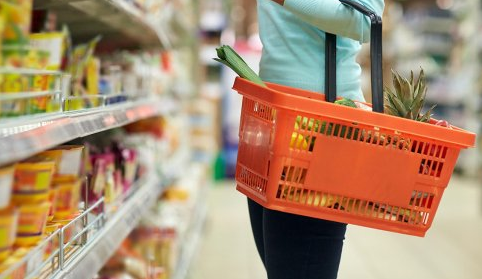
What do consumers think of biobased food packaging? And can manufacturers and retailers strengthen the brand position of their food products by choosing biobased food packaging? Within the COMBO public private partnership, Wageningen University & Research is helping the food sector make well-founded, sustainable packaging choices.
Companies in the food sector are looking for alternatives to regular plastic packaging to reduce their CO2 footprint. With some exceptions, recycled food packaging is not suitable to be reused as food packaging for food safety reasons. This is why packaging made from renewable raw materials is the only sustainable option for the vast majority of food products. “This transition to biobased has to be made carefully,” says Karin Molenveld, scientist at Wageningen Food & Biobased Research. “First, the new packaging must have the right functional properties. But we also need to know how consumers respond to the new packaging and how consumer opinion reflects on the brand.”
Drop-in biobased packaging requires good communication
Molenveld and her colleague Koen Meesters are performing desk research within COMBO into the development of biobased packaging and perceptions among consumers. They found that many manufacturers and retailers choose drop-in biobased packaging, which is chemically identical to the traditional packaging but made from renewable raw materials instead of petroleum. Molenveld: “Consumers immediately notice the difference between biobased packaging with a totally different material composition from the regular packaging. The packaging may have a different appearance or the biobased plastic feels and sounds differently than what they are used to. Consumers experience this as positive. But a ‘fossil’ PET bottle cannot be distinguished from a bottle made from vegetable sugars, so, if you choose to use a drop in biobased packaging, you need to clearly communicate and let the consumer know that (even though it looks exactly the same), the new material is beneficial to the environment.”
Recognisable and substantiated claims
And this communication is sensitive, Meesters adds. “As a manufacturer or retailer you have to be careful about the claims you make. You can’t just say your packaging is CO2 neutral. As it is almost impossible to prove, you run the risk of having to withdraw the claim and damaging your reputation. In other words: make sure the claim is correct. For example, a claim like ‘this packaging is made from plants’ cannot be contradicted. Moreover, consumers like to know what to do with the packaging after use, which is why claims about recycling and composting are included in the research.”
‘The more concrete, the better’
Machiel Reinders, scientist at Wageningen Economic Research, confirms that consumers are positive about claims on biobased packaging such as ‘compostable’ and ‘recyclable’, which clearly indicate how to dispose of the packaging product. Within COMBO, his institute performed quantitative research among German and French consumers who indicated that they care about sustainability. “Our research shows that consumers prefer clear claims. Stating that products can be discarded with the organic waste is a good example. The more concrete the sustainability benefits, the better the packaging is evaluated.”
Sincere intentions matter
The German and French consumers were presented with three varieties of five packaging products: a traditional variety, a fully biobased variety and a variety in-between. Of the three varieties, the consumers indicated that they were most likely to purchase the fully biobased product. From the water bottle to the goat’s cheese in plastic packaging, the various varieties were not evaluated significantly differently from each other. The awareness of packaging properties and the positive evaluation linked to them by consumers play an important role in the intention to buy products in biobased packaging. According to Reinders, a belief in the brand’s sincere intentions is also relevant.
COMBO runs until the end of 2018 and a decision as to which aspects of the research should be focused on in the coming period will be taken by the project partners together. Wageningen Food & Biobased Research invites new partners to join the programme.
Contact
ir. CH (Christiaan) Bolck
Programme manager biobased materials
Source
Wageningen University, press release, 2017-11-30.
Supplier
Share
Renewable Carbon News – Daily Newsletter
Subscribe to our daily email newsletter – the world's leading newsletter on renewable materials and chemicals









